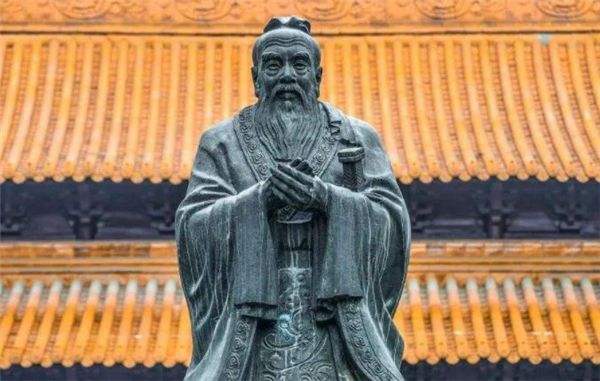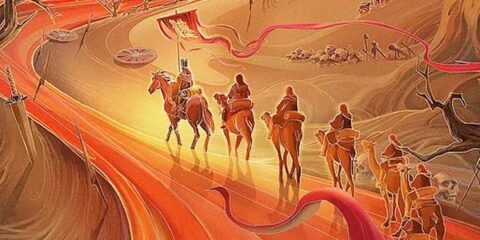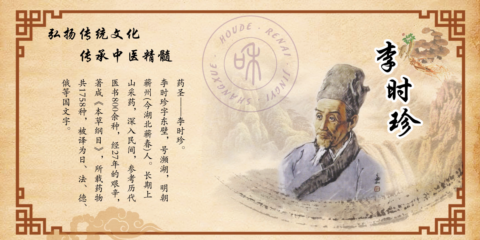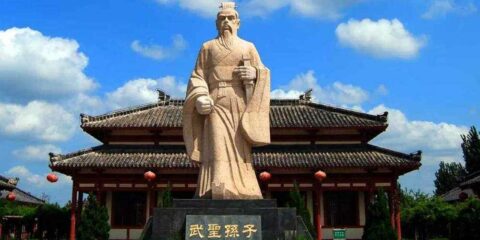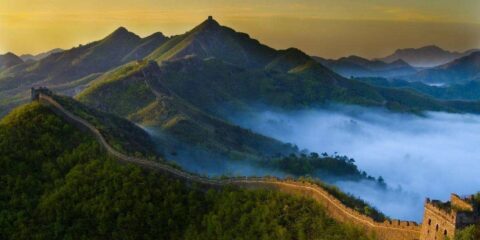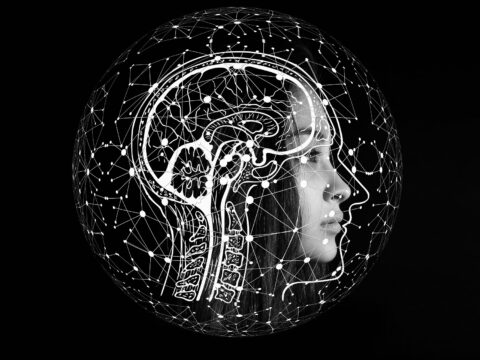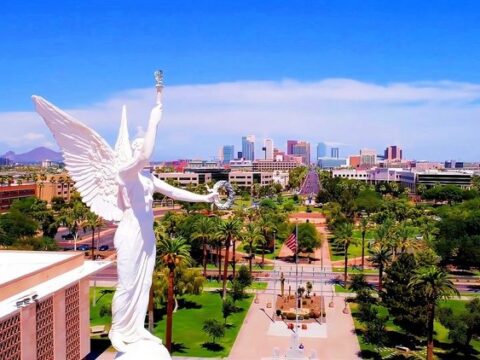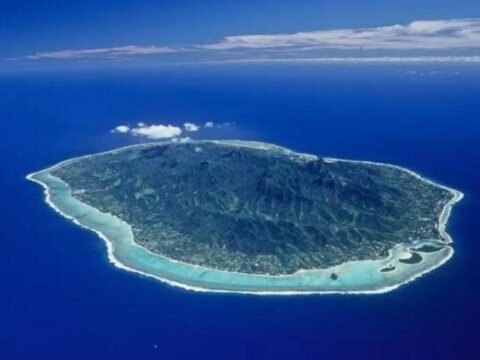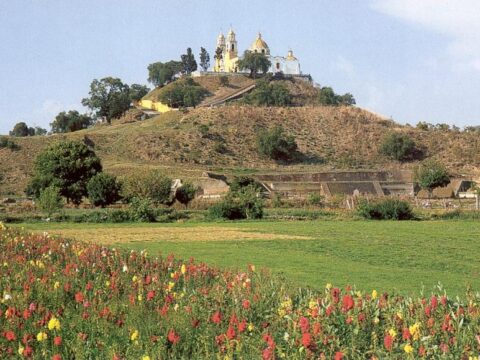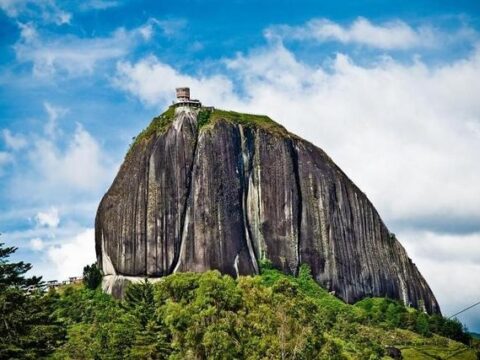| order | name | Time of History | status | consequence |
| 1 | Confucius | 551 BCE-479 BCE | The founder of the Confucian school, one of the most famous cultural celebrities in the world, and the Chinese “eternal sage”. | Confucius is the greatest thinker and educator in Chinese history, a symbol of Chinese culture, and the maker of the code of conduct of the Chinese people for two thousand years. His thoughts and doctrines were the long-standing ideology and official philosophy of ancient society |
| 2 | Qin Shi Huang | 259 BCE-210 BCE | In Chinese history, the Qin Dynasty, a powerful Qin Dynasty, was also the founding emperor of China. | “A hundred generations of Qin politics and law”, he founded the emperor system, and completed a series of unification of China, “abolished entitles, counties and post roads”, making China enter the era of centralized monarchy, which had a profound and significant impact on the history of China and the world, and was known as the “One Emperor through the ages”. |
| 3 | Lao Zi | 571 BCE-471 BCE | The greatest philosopher in Chinese history, a world-famous cultural celebrity | Its theory has had a profound influence on the development of Chinese philosophy. The ruling classes of Chinese dynasties pursued the political concept of “using Huang Lao inside and showing Confucianism outside”.Taoism came about under the influence of its doctrine. Lao Tzu’s Tao Te Ching, The Book of Changes, and the Analects of Confucius are considered to be the three most profound influences on the Chinese people. |
| 4 | Cai Lun | 61 A. D. -121 | If he invented the paper alone, his influence will rank first in human history! | “Paper” has greatly promoted the dissemination and communication of world science and culture, and profoundly affected the process of human history. In view of the great role of paper in cultural inheritance and daily life, Cai Lun, as one of the main inventors of paper, will stand out in history! It can be said that Cai Lun is the best inventor ever! |
| 5 | Han wu di | 156 BC-87 BC | The Chinese Han nation and the Han dynasty established an expansion of the epoch-making giant! | He built a civilization system, laid the foundation for China’s unique Confucianism for two thousand years, and his influence was very profound. In essence, Emperor Wudi was the largest national hero of the Han people. He created the first development peak of China’s feudal dynasty. Emperor Wudi of the Han Dynasty was the first emperor in China to use the annual title and confirmed the first month as the first month. |
| 6 | Mao Zedong | 1893-1976 | The founder of the new China | His great influence includes unifying China, establishing independence, breaking down superstition, eliminating bandits, defeating the Confucius shop, and establishing the concept of equality and communist faith! The influence of the new China is the influence of Mao. Mao’s revolutionary, political, economic, national defense, foreign, industrial, national, and population policies and measures, as well as Mao’s ideological, military, and literary talents, have all influenced him to this day! |
| 7 | Mencius | 372 BC-289 BC | Famous thinker and educator in ancient China | Mencius inherited and carried forward the thought of Confucius and became a Confucian master second only to Confucius. He was known as “subsaint” and Confucius. Mencius was one of the “four books” of ancient China. Mencius’s theory of benevolence and human nature is one of the important reasons why China will not have the religious rule. Mencius accelerated the maturity and strength of the Chinese civilization. |
| 8 | Sui Wen emperor | 541-604 | Yang Jian was the greatest Chinese emperor in the eyes of Westerners | It plunged the Chinese people into the dark ages of Europe and lasted for three and a half centuries. Emperor Wen of Sui then unified China, he made China avoid barbarization! Yang Jian was the greatest Chinese emperor in the eyes of Westerners. First, he established the system of three provinces and six ministries, abolished torture, and most importantly, established the influential imperial examination system. The historical motivation and influence of “studying and becoming an official” are incalculable. |
| 9 | Zhu Xi | 1130-1200 | Zhu Xi was the master of Cheng-Zhu Neo-Confucianism, the main representative of Chinese feudal culture, and the most outstanding master of Confucianism since Confucius and Mencius | His academic thoughts were the official philosophy of the feudal ruling class in the Yuan, Ming, and Qing dynasties. Zhu Xi brought stricter values and codes of conduct to the Chinese people. His objective idealism system and his views of “preserving heaven and destroying human desire” also had an important influence on the history of world culture. |
| 10 | Deng Xiaoping | 1904-1997 | Chief designer of modern “reform and opening up” | It was not Sun and Mao that really revived China, but Deng Xiaoping.He made the country in the Tang Dynasty, once again truly rich and strong, to open, to the world! Reform and opening up have brought about modern industry and modern civilization, which has changed the fate of China, but also changed the Chinese people’s thoughts and values, with a far-reaching impact! Deng Xiaoping was actually one of the most successful reformers in Chinese history! |
| 11 | Sima Qian | 145 BC? -87 BC? | A great historian, thinker, and writer of the Western Han Dynasty | In the Records of the Grand Historian, he recorded more than three thousand years from the Yellow Emperor to Emperor Wudi of the Han Dynasty. Taking history as a mirror more refers to this Shiji as historical data! He made the history of China thereafter a recorded history, which was very influential. Sima Qian’s influence was how China governed it, while Sun Wu’s influence was how China fought. He is a shining giant star in Chinese history! |
| 12 | Liu Bang | 256 BCE-195 BCE | The founding emperor of the Han Dynasty | One of the great pioneers of the Han nation and the Han culture, and an outstanding statesman in Chinese history. Liu Bang has a legendary and rich story, and Xiang Yu’s heroic color and recited in the world! Famous British historians Joseph and Toby commented: ” The two most visionary and influential political figures in human history were Caesar, who founded the Roman Empire, and the other was Liu Bang, Emperor Gaozu of the Han Dynasty who founded the Han civilization. |
| 13 | Zhuangzi | About 369 BC-286 BC | Zhuangzi was a great thinker, philosopher, and writer of the Warring States Period in China | The position of Taoism in the development history of Chinese thought is no lower than that of Confucianism and Buddhism, and the Chinese people of all dynasties were almost more or less influenced by Taoism. Zhuangzi and Laozi are called “Lao Zhuang”. His book Zhuangzi has a strong romantic color and has a great influence on the literature of later generations, including Tao Yuanming, Li Bai, Su Shi, and Xin Qiji. |
| 14 | Tang Taizong | 599-649 | Tang Dynasty emperor | With its history of “Zhenguan governance”, open society, developed economy, and Qingming political reputation, the Tang Empire was a proud superpower in the history of the world. Its military is extremely strong, it has won numerous victories over the surrounding nations and countries, and it is still the pride of the Chinese people. Emperor Taizong was one of the most famous politicians and wise emperors in Chinese history. He was known as one of the best great men in China and had a great influence on the people. |
| 15 | Zhang Zhongjing | About 150-about 219 | At the end of the Eastern Han Dynasty, he was a famous medical scientist, known as the medical sage | Zhang Zhongjing’s principle of syndrome differentiation established in “Typhoid and Miscellaneous Diseases” is the basic principle of TCM clinical, is the soul of TCM, is one of the most influential works in the history of Chinese medicine, and is a necessary classic for post-scholars to study Chinese medicine! This work also has a great impact on East Asian countries. Given his huge role in the development of TCM, the ranking should be here. |
| 16 | Li Si | ? -The Year of 208 BC | The famous prime minister and politician of the Qin Dynasty | Assisted Qin Shi Huang in formulating laws, policies, foreign affairs, civil affairs, and unification. Almost every big thing Li Si did could have an effect of thousands of thousand years. Sima Qian said his achievements were comparable to those of Duke Zhou and Duke Zhao. Lees was the most complete executor of a legalist, who made “external Confucianism and internal law” the two core means for the successive rulers to stabilize their rule. |
| 17 | Song Taizu | 927-976 | Song Dynasty emperor | The flourishing martial spirit of the Han and Tang Dynasty reached the Song Dynasty because he met the Song Taizu who valued literature over martial arts. Emperor Taizu of the Song Dynasty basically unified the Han people region and made great contributions to the prosperity of the Han people’s history and Chinese culture. Song Taizu pursued the concept of “writing with Yasukuni”, which completely reversed the dark situation of martial arts dictatorship since the end of the Tang Dynasty. The Song Dynasty was the most economically prosperous dynasty in Chinese history, and the developed Song Dynasty issued the world’s earliest paper money in the middle |
| 18 | Zhou Gong | About 1,100 BC | Confucius was said to reach the Duke of Zhou. He was one of the two great saints of ancient times | The Duke of Zhou further defined the social order and was one of the pioneers and founders of the national code system, human ethics etiquette, and education system in ancient China. He was honored as the founder of Confucianism. The system of primogeniture established by the Duke of Zhou formulated a series of strict etiquette systems of the monarch, father and son, and inferiority, which had far-reaching influence. If the Rites of Zhou is made, it will be ranked higher. |
| 19 | Qu Yuan | About 340 BC-about 278 BC | He is one of the greatest romantic poets in China, the earliest known famous poet in China, and one of the most famous cultural celebrities in the world | He created the style of “Chu Ci”, and influenced the formation of Han Fu. Qu Yuan influenced the formation of Chinese culture and many writers in later generations. His poetry and genre are one of the main sources of Chinese culture! The origin of the Chinese folk Dragon Boat Festival comes from the commemoration of Qu Yuan. |
| 20 | Dong Zhongshu | 179 BCE-104 BCE | The most influential thinker and the famous idealist philosopher | He operable and standardized Confucian ethical thoughts, such as the “three principles and five permanent”, which created a more mature social order for ancient China and created the national character of later China. Its theory of “unification” and “harmony” provided the theoretical basis for the later feudal rulers. |
Chinese historical figures are analyzed and listed in no chronological order as the top 100 most influential historical celebrities. Influence does not take into account who is famous, significant, outstanding, widely circulated or influential for a while, but rather which person in history has changed the course of Chinese history, the direction of development, people’s livelihood and economy, and way of life, and whether it has changed the outlook on life, values, the ideology of most people in history The history of China’s history is not just about the people, but about which person changed the course of history, the direction of development, the livelihoods, the economy and the way of life. For reference and study only!


